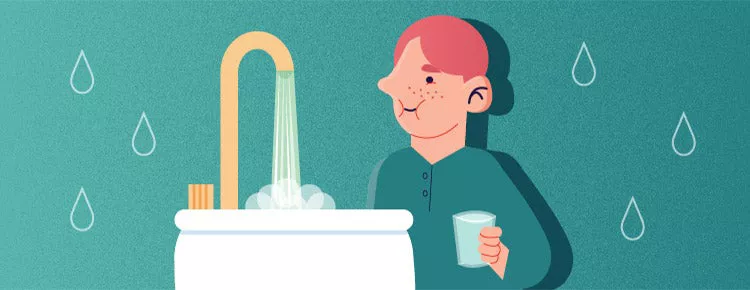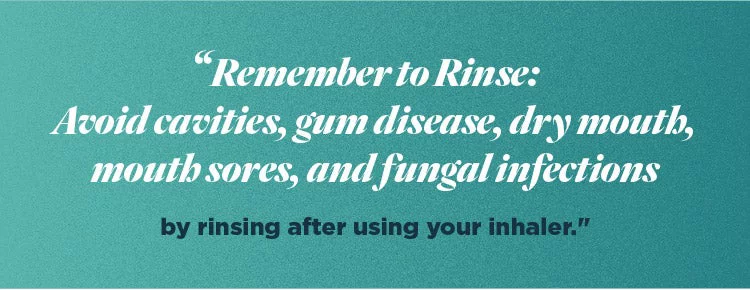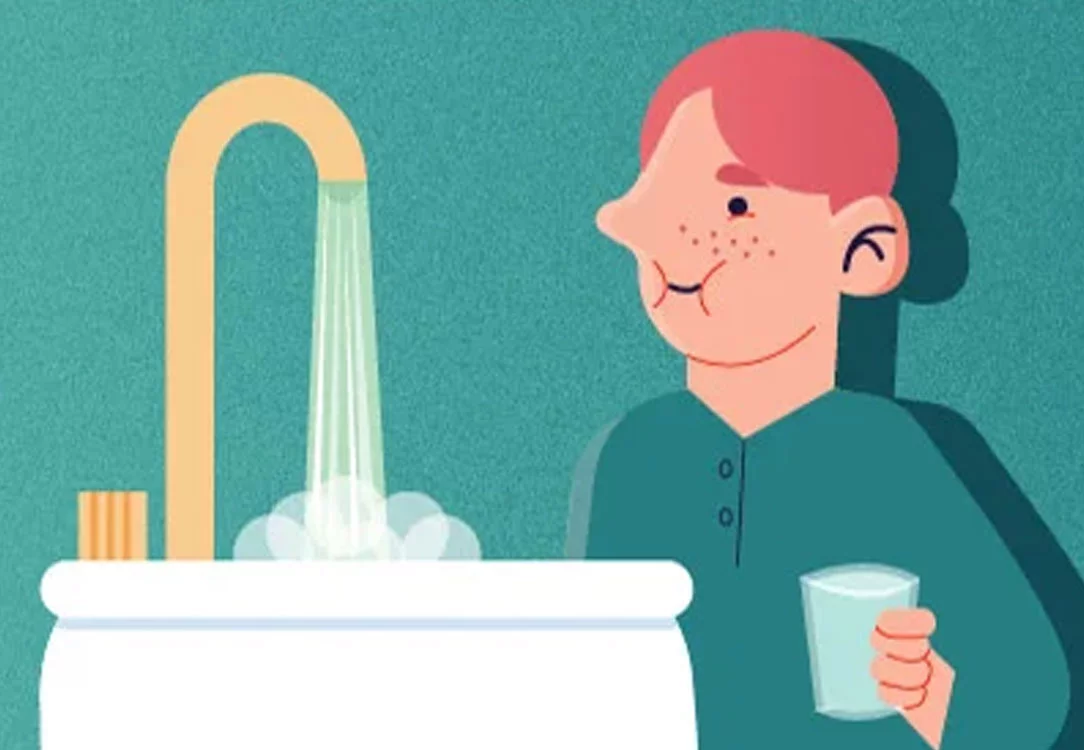Asthma is a chronic disease that causes breathing difficulties by making the airways in the lungs become narrow and begin to swell. According to the CDC, 9.7% of adults suffer from asthma, while 7.6% of children have asthma in the United States.
Inhalers can treat minor cases of asthma as well as severe ones. But unfortunately, while inhalers can help an asthmatic person breathe, they can also cause oral health issues like cavities. While it is possible to talk to your doctor about changing the medication in your inhaler if you notice your oral health is suffering, giving up the inhaler entirely is not an option for most people who have asthma. Fortunately, good oral health habits go a long way, and a few asthma-specific tips can keep your mouth healthy despite having to use an inhaler.

Does Asthma Medication Cause Cavities & Tooth Decay?
In a 2007 study, asthma and tooth decay were the two top reasons for children missing school. The study also showed that the use of the medication salbutamol, also known as albuterol, specifically when used in an inhaler as opposed to in tablet form, increased the tooth decay rate in school children. The effects of albuterol on teeth can not only cause cavities but also lead to periodontal disease.
Dental Problems Inhalers Cause
- Exercise
- Laughing gas
- Allergies
- Smoking
Corticosteroids are steroids used for sudden attacks and are usually used for a shorter period of time.
In addition to tooth decay, inhalers can also cause negative health effects like gum disease, dry mouth, and even fungal infections. Inhalers are an excellent way to manage asthmatic symptoms and can even be a life-saving medication when used during an asthma attack. But as with every kind of medication, negative side effects can occur. Being aware of what negative oral health complications can happen will help you know what to look for and, ultimately, how to protect your mouth from these negative inhaler side effects.
Oral Thrush from Inhaler
Oral thrush is a fungal infection that creates white or yellow bumps or patches on the inside of your cheeks or even on your tongue. It can be uncomfortable at times though most cases are mild and easily treated with antifungal medicine. While thrush often occurs when a person has a weakened immune system, oral medications used like corticosteroids that are prescribed to asthma patients can also lower the immune system in your mouth and throat when ingested through an inhaler.
Dry Mouth
Mouth Sores
A dry mouth can lead to developing mouth sores or canker sores if left untreated. The steroid medications in some patients’ inhalers can lead to the development of dry mouth, and eventually, painful mouth sores will follow. But, as stated above, inhalers can also cause oral thrush, which can also result in open sores in your mouth. The white, bumpy patches can burst open, causing painful, irritating sores to develop.

Why Rinse Mouth After Using an Inhaler?
Brushing twice a day and flossing daily can keep your mouth in the best condition possible. Because most negative side effects result from the medication coating your mouth and teeth, rinsing your mouth out with water after using your inhaler is an excellent way to prevent oral health decline. Specifically, rinsing your mouth after using a steroid inhaler is important because of the medicated residue it leaves on your teeth, inner cheeks, and tongue. Brushing your teeth after using an inhaler is an even better way to clean off the medication's film left on your teeth.
Find A Dentist Near You
If you have asthma and are worried about your inhaler medication having a negative impact on your oral health, establishing a relationship with a trusted dentist in your community is essential to keeping a close eye on your teeth and gums. Smile Generation can help you find an experienced dentist in your area today, use our Find a Dentist tool to find a trusted dentist in your area.
Find your trusted, local dentist today!
Sources
- WebMD. (2022, October 27). Albuterol sulfate - Uses, side effects, and more. WebMD. https://www.webmd.com/drugs/2/drug-6062-566/albuterol-sulfate-oral/albuterol-salbutamol-liquid-oral/details
- Mayo Clinic. (2022, October 27). Asthma. Mayo Clinic. https://www.mayoclinic.org/diseases-conditions/asthma/symptoms-causes/syc-20369653
- Centers for Disease Control and Prevention. (2021, April 16). Asthma data visualizations. CDC. https://www.cdc.gov/asthma/data-visualizations/default.htm
- Asthma.net. (2022, March). Asthma inhalers and dental health. Asthma.net. https://asthma.net/clinical/dental-health
- Mayo Clinic. (2022, August 17). Asthma medications: Know your options. Mayo Clinic. https://www.mayoclinic.org/diseases-conditions/asthma/in-depth/asthma-medications/art-20045557
- Behring, S. (2021, March 1). Can you get oral thrush from an inhaler? Healthline. https://www.healthline.com/health/dental-and-oral-health/thrush-from-inhaler#takeaway
- WebMD. (2021, December 17). Bronchodilators (rescue inhalers): Short-acting and long-acting types. WebMD. https://www.webmd.com/asthma/asthma_inhalers_bronchodilators
- Shashikiran, N. D., Reddy, V. V. S., & Krishnam Raju, P. (2007, April). Effect of antiasthmatic medication on dental disease: Dental caries and periodontal disease. National Institutes of Health. https://pubmed.ncbi.nlm.nih.gov/17660639/
- Singla, P., & Weiss, D. (2022, August 21). Side effects of Advair: What you need to know. Healthline. https://www.healthline.com/health/drugs/advair-side-effects#fa-qs
- American Dental Association. (2021, February 22). Xerostomia (dry mouth). ADA. https://www.ada.org/resources/ada-library/oral-health-topics/xerostomia/
Smile Generation blog articles are reviewed by a licensed dental professional before publishing. However, we present this information for educational purposes only with the intent to promote readers’ understanding of oral health and oral healthcare treatment options and technology. We do not intend for our blog content to substitute for professional dental care and clinical advice, diagnosis, or treatment planning provided by a licensed dental professional. Smile Generation always recommends seeking the advice of a dentist, physician, or other licensed healthcare professional for a dental or medical condition or treatment.








